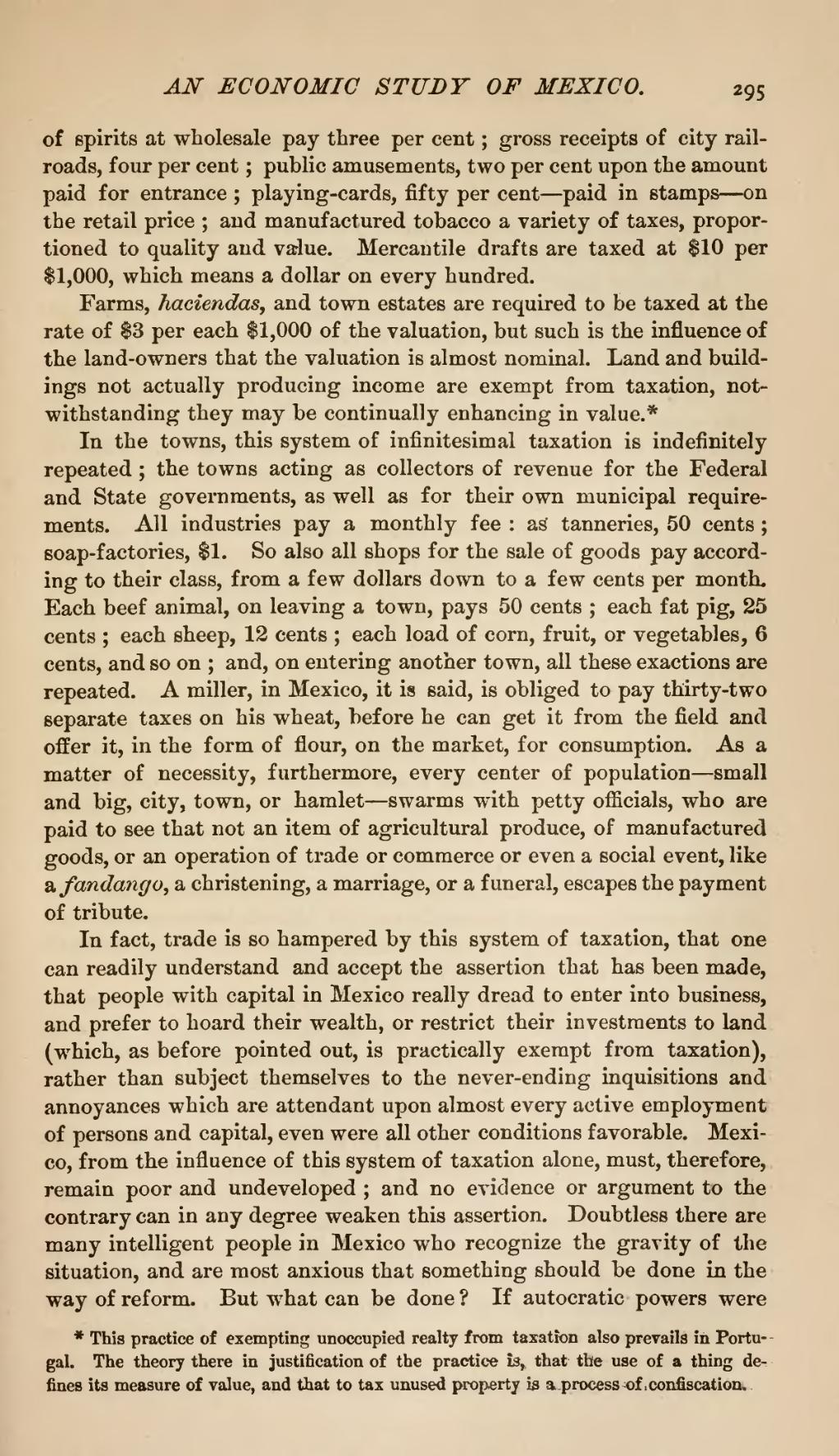of spirits at wholesale pay three per cent; gross receipts of city railroads, four per cent; public amusements, two per cent upon the amount paid for entrance; playing-cards, fifty per cent—paid in stamps—on the retail price; and manufactured tobacco a variety of taxes, proportioned to quality and value. Mercantile drafts are taxed at $10 per $1,000, which means a dollar on every hundred.
Farms, haciendas, and town estates are required to be taxed at the rate of $3 per each $1,000 of the valuation, but such is the influence of the land-owners that the valuation is almost nominal. Land and buildings not actually producing income are exempt from taxation, notwithstanding they may be continually enhancing in value.[1]
In the towns, this system of infinitesimal taxation is indefinitely repeated; the towns acting as collectors of revenue for the Federal and State governments, as well as for their own municipal requirements. All industries pay a monthly fee: as' tanneries, 50 cents; soap-factories, $1. So also all shops for the sale of goods pay according to their class, from a few dollars down to a few cents per month. Each beef animal, on leaving a town, pays 50 cents; each fat pig, 25 cents; each sheep, 12 cents; each load of corn, fruit, or vegetables, 6 cents, and so on; and, on entering another town, all these exactions are repeated. A miller, in Mexico, it is said, is obliged to pay thirty-two separate taxes on his wheat, before he can get it from the field and offer it, in the form of flour, on the market, for consumption. As a matter of necessity, furthermore, every center of population—small and big, city, town, or hamlet—swarms with petty officials, who are paid to see that not an item of agricultural produce, of manufactured goods, or an operation of trade or commerce or even a social event, like a fandango, a christening, a marriage, or a funeral, escapes the payment of tribute.
In fact, trade is so hampered by this system of taxation, that one can readily understand and accept the assertion that has been made, that people with capital in Mexico really dread to enter into business, and prefer to hoard their wealth, or restrict their investments to land (which, as before pointed out, is practically exempt from taxation), rather than subject themselves to the never-ending inquisitions and annoyances which are attendant upon almost every active employment of persons and capital, even were all other conditions favorable. Mexico, from the influence of this system of taxation alone, must, therefore, remain poor and undeveloped; and no evidence or argument to the contrary can in any degree weaken this assertion. Doubtless there are many intelligent people in Mexico who recognize the gravity of the situation, and are most anxious that something should be done in the way of reform. But what can be done? If autocratic powers were
- ↑ This practice of exempting unoccupied realty from taxation also prevails in Portugal. The theory there in justification of the practice is, that the use of a thing defines its measure of value, and that to tax unused property is a process of confiscation.
